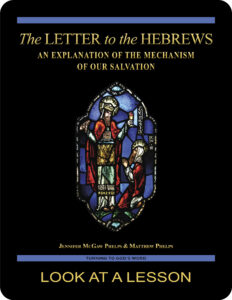anxiety
 In the Letter to the Philippians 4:6 (NABRE), Paul urges his readers to “have no anxiety,” a powerful statement, though this translation may not capture the full spirit of the original intent.
In the Letter to the Philippians 4:6 (NABRE), Paul urges his readers to “have no anxiety,” a powerful statement, though this translation may not capture the full spirit of the original intent.
Anxiety involves a fear response and bears much relationship to fear. In that context, this statement seems similar to many statements throughout Scripture telling us not to be afraid. The Greek word here, μεριμνάω (merimnao), by contrast, can mean “care for” or “look out for.” The idea seems to be concerned primarily with care or potential distress that comes from attachment to the world and the things of the world. Paul’s core point is not that we should avoid fear, but that we shouldn’t let care or concern for things other than God weigh us down or trouble us.
What are your cares and concerns? Do any of these cause you distress or take away from your relationship with God?
you also may like our study of the Letter to the Hebrews (digital only)
 Many Christians struggle to understand one of the central mysteries of our faith: how Jesus can be both human and divine at the same time. The Letter to the Hebrews: An Explanation of the Mechanism of Our Salvation, an 18-lesson Catholic Bible study with an imprimatur, offers an in-depth look at the way in which Jesus’ dual nature allows for the salvation of humanity. The Letter to the Hebrews is designed to provide information that will encourage Christians to remain faithful. Click on the book’s cover to view a sample lesson.
Many Christians struggle to understand one of the central mysteries of our faith: how Jesus can be both human and divine at the same time. The Letter to the Hebrews: An Explanation of the Mechanism of Our Salvation, an 18-lesson Catholic Bible study with an imprimatur, offers an in-depth look at the way in which Jesus’ dual nature allows for the salvation of humanity. The Letter to the Hebrews is designed to provide information that will encourage Christians to remain faithful. Click on the book’s cover to view a sample lesson.
 Click on the picture of the statue of Moses with horns (above) to learn more about Lost in Translation. A new entry is archived each Monday. Contact us to receive Lost in Translation by email every week. You may use any of the contact links on our website to ask Matthew a question.
Click on the picture of the statue of Moses with horns (above) to learn more about Lost in Translation. A new entry is archived each Monday. Contact us to receive Lost in Translation by email every week. You may use any of the contact links on our website to ask Matthew a question.
